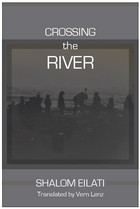
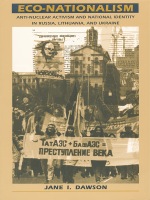
Dawson combines a theoretical framework based on models of social movements with extensive field research to compare the ways in which nationalism, regionalism, and other political demands were incorporated into anti-nuclear movements in Russia, Lithuania, Ukraine, Armenia, Tatarstan, and Crimea. These comparative case studies form the core of the book and trace differences among the various regional movements to the distinctive national identities of groups involved. Reflecting the new opportunities for research that have become available since the late 1980s, these studies draw upon Dawson’s extended on-site observation of local movements through 1995 and her unique access to movement activists and their personal archives.
Analyzing and documenting a development with sobering and potentially devastating implications for nuclear power safety in the former USSR and beyond, Eco-nationalism’s examination of social activism in late and postcommunist societies will interest readers concerned with the politics of global environmentalism and the process of democratization in the post-Soviet world.

Nancy Sinkoff's new introduction explores the historical forces, particularly the dynamic world of secular Yiddish culture, which shaped Dawidowicz's decision to journey to Poland and her reassessment of those forces in the last years of her life.

A young Jewish boy—the old, much-fought-over city of Vilnius—the rumblings and then the reality of World War I—all combine in this book to create a striking historical document of a period during which Europe and the Western world were changed forever. In the streets and alleys of Vilnius actor Joseph Buloff came of age, learning the arts of shape-altering necessary for survival during successive occupations by Cossacks, Germans, Bolsheviks, and Poles; it is this fascinating vanished milieu that he brings to life in From the Old Marketplace.
For a little boy, the old marketplace was full of enchantment, a world in itself, and Buloff brilliantly describes the eccentric inhabitants who peopled his childhood: Berchick the orphan, Barve's son the intellectual and historian, the starveling Matzek, Arkashka the Cossack, Joseph's mother, the saintly yet practical Sarah, and his father, Benjamin, who made a fortune in America and lost it again in Europe.
The boy came to realize his own Jewishness when Russian persecution forced the Jews to make the synagogue the center of their world. He was driven by brutality, hunger, and ostracism to transform himself in spirit into the imaginary Chantille Jeantaigne Delacroix, scourge of evil, avenger of his people, Conqueror of Death. Joseph's accounts of daily life under unbelievably hard circumstances range from down-to-earth facts to soaring flights of fantasy—and his desperate acting in order to stay alive brought him his true vocation, first on the scrounging amateur stage and then in the professional theatre.
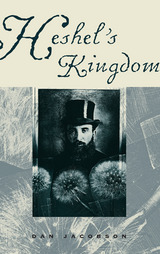
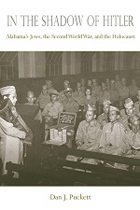
In this extensive study of how southern Jews in the United States responded to the Nazi persecution of European Jews, Dan J. Puckett recounts the divisions between Alabama Jews in the early 1930s. As awareness of the horrors of the Holocaust spread, Jews across Alabama from different backgrounds and from Reform, Conservative, and Orthodox traditions worked to bridge their internal divisions in order to mount efforts to save Jewish lives in Europe. Only by leveraging their collective strength were Alabama’s Jews able to sway the opinions of newspaper editors, Christian groups, and the general public as well as lobby local, state, and national political leaders.
Puckett’s comprehensive analysis is enlivened and illustrated by true stories that will fascinate all readers of southern history. One such story concerns the Altneuschule Torah of Prague and describes how the Nazis, during their brutal occupation of Czechoslovakia, confiscated 1,564 Torahs and sacred Judaic objects from communities throughout Bohemia and Moravia as exhibits in a planned museum to the extinct Jewish race. Recovered after the war by the Czech Memorial Scrolls Trust, the Altneuschule Torah was acquired in 1982 by the Orthodox congregation Ahavas Chesed of Mobile. Ahavas Chesed re-consecrated the scroll as an Alabama memorial to Czech Jews who perished in Nazi death camps.
In the Shadow of Hitler illustrates how Alabama’s Jews, in seeking to influence the national and international well-being of Jews, were changed, emerging from the war period with close cultural and religious cooperation that continues today.
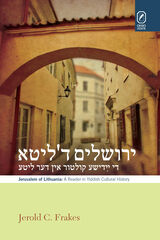
Yerusholayim d’lite: di yidishe kultur in der lite (Jerusalem of Lithuania: A Reader in Yiddish Cultural History) by Jerold C. Frakes contains cultural, literary, and historical readings in Yiddish that vividly chronicle the central role Vilnius (Lithuania) played in Jewish culture throughout the past five centuries. It includes many examples of Yiddish literature, historiography, sociology, and linguistics written by and about Litvaks and includes work by prominent Yiddish poets, novelists, raconteurs, journalists, and scholars. In addition, Frakes has supplemented the primary texts with many short essays that contextualize Yiddish cultural figures, movements, and historical events.
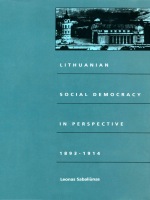
But Sabaliunas also considers such partners and rivals as the Jewish Bund, the Polish Socialist Party, the Social Democracy of the Kingdom of Poland and Lithuania, and the Russian Social Democratic Labor Party. He focuses on the appearance of socialist parties at the local level, the politics of assertive behavior during the Russian Revolution of 1905–1906, the nature of interparty relations, and efforts to promote party unity. In particular, he investigates the projected relationship between Russia and its subject nationalities—a cardinal concern today as the Baltic peoples attempt to distance themselves from their Russian neighbors.
Sabaliunas clarifies current massive Lithuanian opposition to Moscow and to its version of socialism. He stresses that in Lithuania the socialist movement from the beginning not only sought solutions to social and economic problems but also addressed issues of ethnic and national interest, especially the question of national sovereignty.
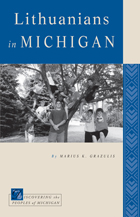
In Lithuanians in Michigan Marius Grazulis recounts the history of an immigrant group that has struggled to maintain its identity. Grazulis estimates that about 20 percent of the 1.6 million Lithuanians who immigrated to the United States arrived on American shores between 1860 and 1918.
While first-wave immigrants stayed mostly on the east coast, by 1920 about one-third of newly immigrated Lithuanians lived in Michigan, working in heavy industry and mining.
With remarkable detail, Grazulis traces the ways these groups have maintained their ethnic identity in Michigan in the face of changing demographics in their neighborhoods and changing interests among their children, along with the challenges posed by newly arriving "modern" Lithuanian immigrants, who did not read the same books, sing the same songs, celebrate the same holidays, or even speak the same language that previous waves of Lithuanian immigrants had preserved in America. Anyone interested in immigrant history will find Lithuanians in Michigan simultaneously familiar, fascinating, and moving.
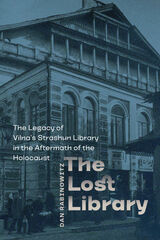


A powerful eyewitness account of the Shavl ghetto in Nazi-occupied Lithuania
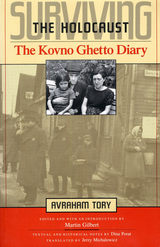
This remarkable chronicle of life and death in the Jewish Ghetto of Kovno, Lithuania, from June 1941 to January 1944, was written under conditions of extreme danger by a Ghetto inmate and secretary of the Jewish Council. After the war, in order to escape from Lithuania, the author was forced to entrust the diary to leaders of the Escape movement; eventually it made its way to his new home in Israel.
The diary incorporates Avraham Tory’s collections of official documents, Jewish Council reports, and original photographs and drawings made in the Ghetto. It depicts in grim detail the struggle for survival under Nazi domination, when—if not simply carted off and murdered in a random “action”—Jews were exploited as slave labor while being systematically starved and denied adequate housing and medical care. Through it all, Tory’s overriding purpose was to record the unimaginable events of these years and to memorialize the determination of the Jews to sustain their community life in the midst of the Nazi terror.
Of the surviving diaries originating in the principal European Ghettos of this period, Tory’s is the longest written by an adult, a dramatic and horrifying document that makes an invaluable contribution to contemporary history. Tory provides an insider’s view of the desperate efforts of Ghetto leaders to protect Jews. Martin Gilbert’s masterly introduction establishes the authenticity of the diary, presents its events against the backdrop of the war in Europe, and considers the crucial questions of collaboration and resistance.
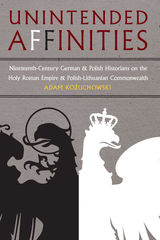
READERS
Browse our collection.
PUBLISHERS
See BiblioVault's publisher services.
STUDENT SERVICES
Files for college accessibility offices.
UChicago Accessibility Resources
home | accessibility | search | about | contact us
BiblioVault ® 2001 - 2024
The University of Chicago Press









